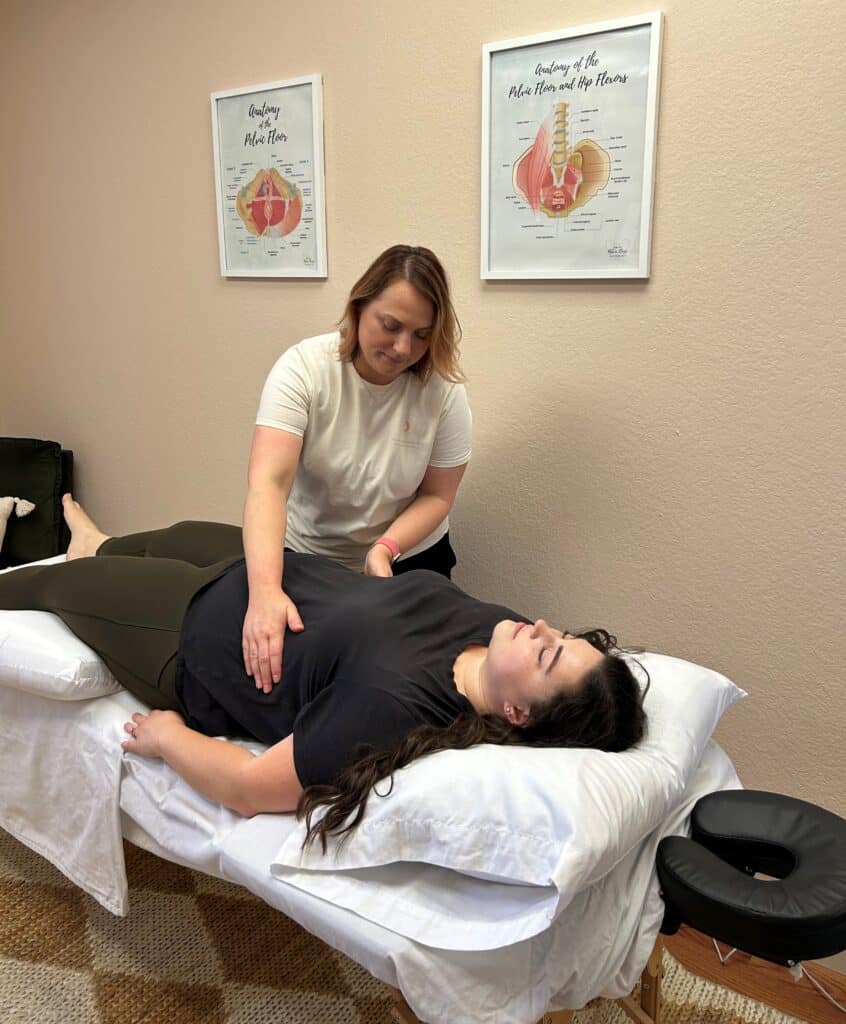Pelvic Health Occupational Therapy: A Postpartum Essential for Moms

It’s a pleasure to introduce our newest guest post by Isabel Hartounian, MS, OTR/L, PMH-C. Isabel is an occupational therapist that specializes in pelvic floor therapy. She is the owner of Thrive Maternal Care, located in San Jose, CA. Isabel works with pregnant and postpartum patients to confidently heal their bladder, bowel, and pelvic pain issues in order to feel comfortable doing everyday activities.
Bringing your bundle of joy into the world is one of life’s most incredible experiences. However, the postpartum period can bring its own set of challenges for new moms. One valuable resource that often flies under the radar is Pelvic Health Occupational Therapy. Let’s dive into what it is and how it can be a game-changer for moms navigating the postpartum journey.
What is Pelvic Health Occupational Therapy?

Pelvic Health Occupational Therapy (OT) is like a superhero for your post-baby body. Occupational therapists with specialized training in pelvic health focus on helping you regain and maintain pelvic floor and core strength, mobility, and function. Whether you had a vaginal birth or a C-section, your body goes through significant changes during pregnancy and childbirth. Pelvic Health OT is here to ensure you recover well and thrive.
Why is it Important for Moms in Postpartum?
- Pelvic Floor Rehabilitation: One of the primary focuses of Pelvic Health OT is to regain optimal pelvic floor functioning. This area plays a crucial role in bladder and bowel control, as well as sexual function. After childbirth, the pelvic floor muscles/nerves/tissues can be weakened. Pelvic Health OT provides exercises and strategies to regain strength and treat issues like incontinence or pressure “down there.”
- Pain Relief: Pregnancy and childbirth can bring on various aches and pains, especially in the lower back and pelvis. OTs use techniques like manual therapy, stretches, and exercises to alleviate pain and improve mobility.
- Core Stability: Your core takes a hit during pregnancy, and rebuilding it safely is vital. Pelvic Health OTs guide you in restoring core strength, which is essential for everyday activities and preventing back problems.
- Emotional Support: Let’s not forget the emotional toll that childbirth and postpartum can have. Pelvic Health OTs offer a safe space to discuss any emotional challenges you’re facing and provide coping strategies.
- Tailored Care: Every mom is unique, and so are her postpartum needs. Pelvic Health OTs create personalized plans to address your specific concerns and goals, ensuring a tailored approach to your recovery.
- Preventing Future Issues: The benefits of Pelvic Health OT go beyond the immediate postpartum period. By addressing potential issues early on, you can prevent long-term problems that might arise later in life.
How to Get Started
To reap the benefits of Pelvic Health OT, reach out to us at Thrive Maternal Care. Thrivematernal.com


Isabel Hartounian, MS, OTR/L, PMH-C
Occupational Therapist
Thrive Maternal Care
Thrivematernal.com

Kristin D’Ambrosio, MA, CPD
wife, mother, and CAPPA certified postpartum doula
Kristin D’Ambrosio, MA, CPD is a wife, mother, and CAPPA certified postpartum doula in the San Francisco Bay Area. Kristin holds a Master of Arts degree in Education, Concentration in Counseling and Student Personnel from San José State University. Kristin is also a board member and involved parent at a Bay Area non-profit co-op preschool, and is a Certified Positive Discipline Parent Educator. Her intuitive, caring nature and a calling to serve new and growing families is what has brought her into birth work. Her approach is trauma aware and non-judgemental.
